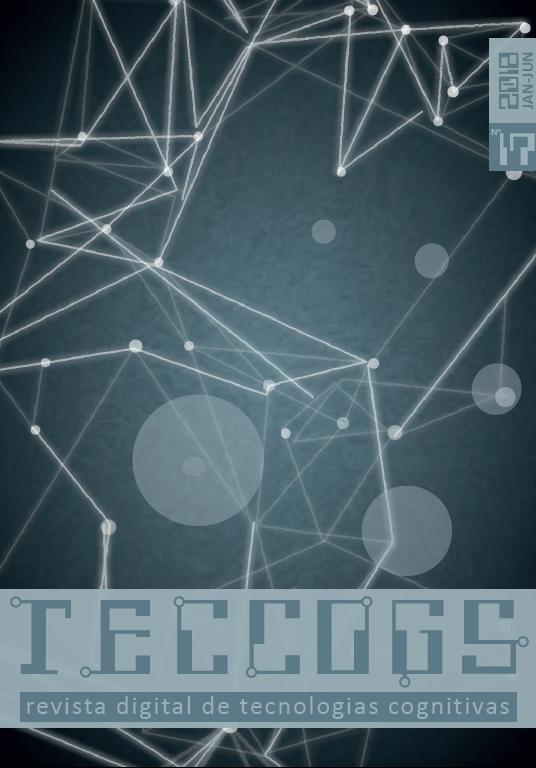The underrated debate about the artificial in AI
DOI:
https://doi.org/10.23925/1984-3585.2018i17p113-127Keywords:
Artificial Intelligence, Imitation game, Human computers, Alan Turing, Charles BabbageAbstract
This paper aims to explore the debate concerning the role of artificiality in the study of Artificial Intelligence (AI). In order to do so, I will first show two different meanings of the term “artificial” and how both do not fit equally well when referring to Intelligence. Secondly, a distinction will be made concerning AI and its contextualized current uses. Once these semantic boundaries have been established, the role and meaning of “artificiality” in AI will be finally analyzed, having as our main reference Turing’s idea of an Imitation Game, the work of Charles Babbage and the forgotten economic category of professionals called “human computer”, fundamental to the development of computation before the invention of modern computers.
References
BABBAGE, C. On the economy of machinery and manufactures. Cambridge: Cambridge University Press, 2010.
BOOLOS, G. et al. Computabilidade e lógica. São Paulo: Editora Unesp,2012.
CHALMERS, D. The puzzle of conscious experience. Scientific American 273(6), p. 80-86, 1995.
FEFERMAN, S. Historical introduction. In: TURING, A. M. Mathematical logic. GANDY, R.; YATES, C.E.M. (Orgs.). Amsterdam: Elsevier Science, 2001.
GRIER, D. A. When computers were human. Princeton, NJ: Princeton University Press, 2007.
HACKING, I. Representar e intervir. Rio de Janeiro: EdUERJ, 2012.
LACEY, H. O modelo das interações entre as atividades científicas e os valores. Scientiae Studia, vol. 12, nº. 4, 2014.
SEARLE, J. Minds, brains, and programs. Behavioral and brain sciences, 3 (3), p. 417-457. 1980.
SIMON, H. The sciences of the artificial. Cambridge, MA: MIT Press, 1996.
SMITH, A. A riqueza das nações: investigação sobre sua natureza e suas causas. São Paulo: Nova Cultural, 1996.
TURING, A. Computing machinery and intelligence. Mind, vol. 59, issue 236, 433–460. 1950.
Downloads
Published
How to Cite
Issue
Section
License
Copyright (c) 2018 Orlando Lima Pimentel

This work is licensed under a Creative Commons Attribution 4.0 International License.
Esta revista oferece acesso livre imediato ao seu conteúdo de acordo com a licença CC BY 4.0, em conformidade com a definição de acesso público do Directory of Open Access Journals (DOAJ).
Ao submeter um texto à TECCOGS, os autores asseguram que o material submetido à avaliação e eventual publicação não infringe de modo algum qualquer direito proprietário ou copyright de outros. Com a submissão, o autor transfere em efetivo os direitos de publicação do artigo para a TECCOGS. A transferência de copyright cobre os direitos exclusivos de publicação e distribuição do artigo, incluindo reimpressões ou quaisquer outras reproduções de natureza similar, além de traduções. Os autores mantém o direito de usar todo ou partes deste texto em trabalhos futuros de sua autoria e de conceder ou recusar a permissão a terceiros para republicar todo ou partes do texto ou de suas traduções. Para republicar números da revista na íntegra, qualquer interessado precisa obter permissão por escrito tanto dos autores como também dos editores da TECCOGS. A TECCOGS por si só pode conceder direitos relativos a emissões de periódicos como um todo.
Imagens com direitos autorais pertencentes a terceiros, que não foram concedidos ao autor do texto, devem ser utilizadas somente quando necessárias à análise e ao argumento da pesquisa, sempre indicando as respectivas fontes e autoria. A TECCOGS dispensa o uso de imagens meramente ilustrativas. Se desejar ilustrar um conceito, o autor deve indicar, em forma de URL ou referência bibliográfica, uma referência em que a ilustração esteja disponível.
---------------------------------------------------------------------------------
This journal offers free immediate access to its content under CC BY 4.0, in accordance with Directory of Open Access Journals' (DOAJ) definition of Open Acess.
When submitting a text to TECCOGS, authors ensure that the material submitted for evaluation and eventual publication does not infringe any proprietary right or copyright. Upon submission, authors effectively transfer the publication rights of the article to TECCOGS. The copyright transfer covers the exclusive rights of publication and distribution of the article, including reprints or any other reproduction of similar nature, in addition to translations. Authors retain the right to use all or parts of the text in future works of their own, as well as to grant or refuse permission to third parties to republish all or parts of the text or its translations. In order to fully republish issues of the magazine, anyone interested must obtain written permission from both the authors and the editors of TECCOGS. TECCOGS alone can grant rights relating to issues of journals as a whole.
Images whose copyright belongs to third parties that have not been granted to the author of the text should be used only when essential for the analysis and argument, always indicating theirs respective sources and authorship. TECCOGS dismisses any use of merely illustrative images. To illustrate a concept, the author must indicate, in the form of a URL or bibliographic reference, a source in which the illustration is available.


